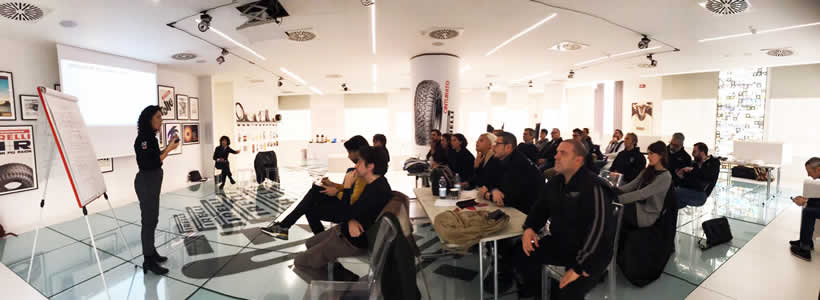
[button link=”https://www.arredanegozi.it/2022/04/xt-italia-dei-poverini-fare-formazione-si-ma-poi-serve-anche/ ” icon=”none” target=”” color=”a30b0b” textcolor=”ffffff”]TESTO ITALIANO[/button]
by Paolo Zanardi, XT srl
Dear readers,
Our company has always been involved in training for all questions related to managing a network of stores. We develop training processes to give all the necessary information and tools to the younger generations, but also to veterans, so that they remain in step with the times and can always have new inputs in order to offer the best possible service to the end customer.
The training market in Italy, linked to the sector in which we have almost thirty years of experience, offers a very wide panorama, both as a content offer and as profiles of highly qualified teachers.
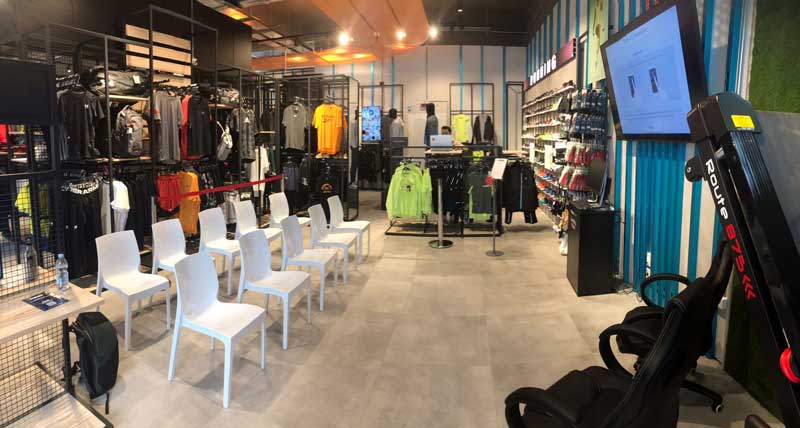
Since 2018, remote training has also become widespread, empowering more participants in smart working and offering an additional opportunity to companies.
Before going into the details of what today is the general and specific panorama of the world of retail training, I want to share with you, unfortunately without the possibility of comparison, a general thought that in a certain sense also affects the topic of this issue of AN.
That is, are we sure that all the efforts made by companies and training institutions are collected and exploited in the best way of end users? I mean that it is not uncommon for training projects to be used as an excuse to justify an approach by users that is not always correct.
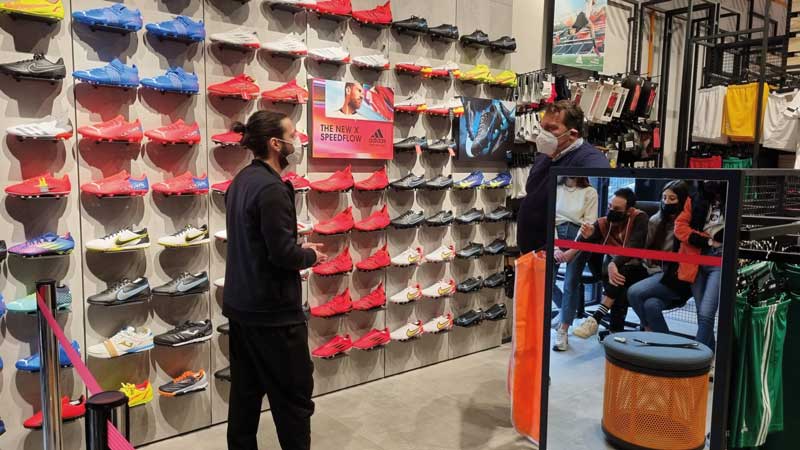
I’ just step back.
In recent years, in my opinion, we are witnessing more and more the spread of a “loser mentality” that I identify in the generation of the “poor people”. I am referring to an increasingly frequent approach of continually justifying the new generations who, seemingly less fortunate, must always be supported because in some way fate has not helped them as they would have liked.
I give some examples to explain myself better:
“…. Eh, but poor thing didn’t have the chance to …”
“… Poor thing, she was a bit unlucky because she had … “.
“… What a pity, because she would also be a good person but you know poor thing happened to her that…”..

Retail companies, despite the pandemic, complain of the shortage of profiles that want to work in the store, of young people willing to sacrifice. Citizen’s income has a heavy responsibility on this theme because the most frequent response that HR managers hear is: “between taking € 800,00 while staying at home and € 1,000.00 going to work (even Saturdays and Sundays), I prefer to stay at home”.These are just a few examples that many of you will surely have heard.
However, I have the perception that this mentality is spreading, thus creating new generations of young people who live in the culture of the alibi and often expect others to support them, to justify them and to understand them , waiting for something to be given to them.
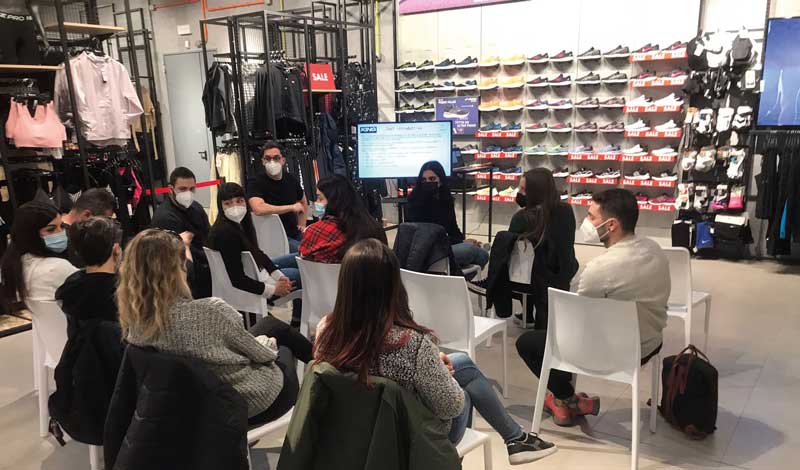
This rule is being lost: FIRST PROVE AND THEN GET
Aid, understanding and justification are all elements that weaken the subject who must find the resources to create a path. It is increasingly common during our training courses to come across profiles, especially in the new generations, that take for granted the training that the company provides them; but above all that once received the same are not set the goal of making the most of this opportunity.
Companies today struggle a lot to find people who are willing to make sacrifices to be able to have or keep a job in retail. It is increasingly easy to come across people who do not want to work on Saturdays and/or Sundays, are unwilling to work shifts or, for positions of greater responsibility, are not available to moving to another city.
At this point I ask myself, and I always ask those present during my training courses:
“… what is the use of training if you are the first to not invest in a profession whose main characteristics are the availability of timetables, the ability to be dynamic and above all the willingness to put yourself at the service of the consumer?”.
And also:
“… what is the use of being in the classroom or on a store to do training if you are then unable to implement what is asked by the company?”.
Working in retail today means having a theoretical and practical preparation as in all professions, and like all professions you have to study. The times are no longer where it is enough to be confident or passionate about a product. Those who work in a store today must have human qualities but must apply themselves by studying specific topics. Working in a store or managing a store in 2022 means having knowledge of marketing, social media, sales, personnel management, organizational skills and much more.
All this requires method and to have method you need to study.
The most worrying thing among the new generation is the spread of the current of thought identified with the acronym YOLO, that is, You Only Live Once … I think about enjoying it because tomorrow who knows …
This approach to life, however in my view also emphasized of social media and a junk TV, is based on characters and subjects apparently winning, which should not be taken as an example by young people but that the new generations see as a point of reference.
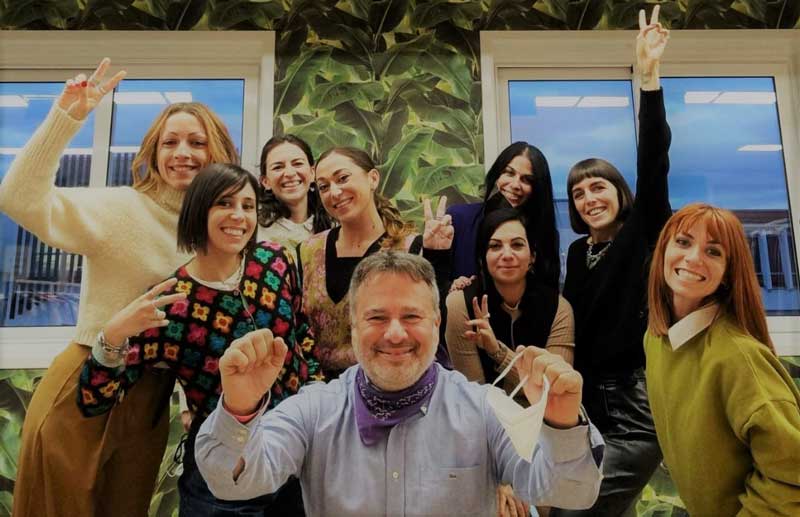
YOLO is not just an acronym but a real philosophy of life. It teaches us to live better every day because we have only one life (You Only Live Once).
It is nothing more than the “updated” version of the historical Latin phrase “Carpe Diem” taken from the Odes of the Latin poet Horace, whose meaning can be translated into “seize the day” or “seize the moment”. Carpe Diem is usually quoted in this abbreviated form, although it would be appropriate to complete it with the following of Horace’s verse: “quam minimum credula postero” (“trusting little in tomorrow”).
The phrase and acronym YOLO are both used in youth culture, internet slang, and music.
The song The Motto by Canadian rapper Drake was given great popularity in 2011. She later became popular thanks to the famous singer Zayn, former member of the boy band One Direction, who pronounced it during one of his interviews. Lenni Kim, a Canadian singer, has titled YOLO a song that is part of his album Les Autres. All this contributes in an important way to make the young generations believe that it makes no sense to commit so much, or to sacrifice certain pleasures, because tomorrow we do not know what will happen.
So here’s the topic that maybe should be the focus of each training course, regardless of the subject that it is:
THE IMPORTANCE OF HAVING GOALS, REDISCOVERING THE PASSION FOR SOMETHING AND APPRECIATING THE SACRIFICIUM FOR THE ATTAINMENT OF A PURPOSE.
Before talking about work methodology, sales techniques and visual merchandising, we should do a training course that draws people to the sense of duty, the ability to appreciate what you have and above all the desire to build something that does not have an immediate result, but finding the patience to build a career over time.
In the initial stages of my courses, I always ask for an examination of conscience, that is:
“Are we sure we have an interest in this work?”
“Are we equally sure that we are interested in the professional field in which we operate?”
“And above all, do we really care about our customer?”
Without these assumptions, sometimes provocatively, I turn to them saying:
“… those who are not convinced of these premises are better off leaving the classroom”.
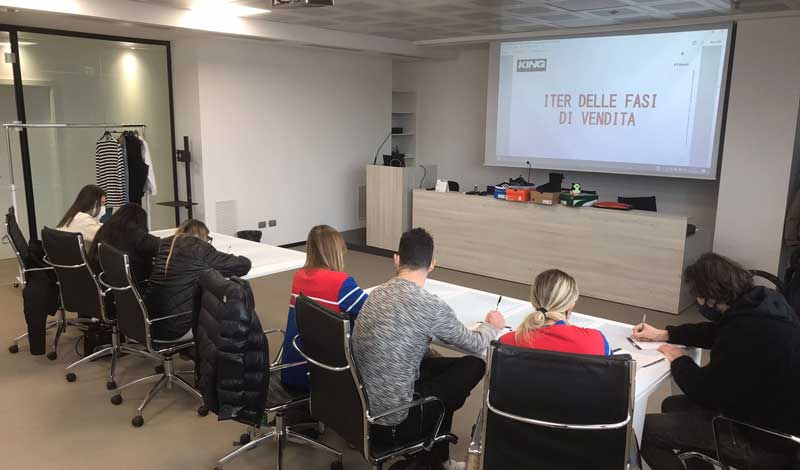
Only through a moment of self-criticism and analysis of one’s real desires is it possible to start a training course. Training should not be taken for granted but should be appreciated.
In conclusion, in a competitive market such as retail, training is certainly one of the fundamental key tool to maintain a high level of performance, however, if it is not assimilated and exploited, there is a risk of losing its positive effects in a short time by undermining economic resources and time.
by AN shopfitting magazine no.168 ©

